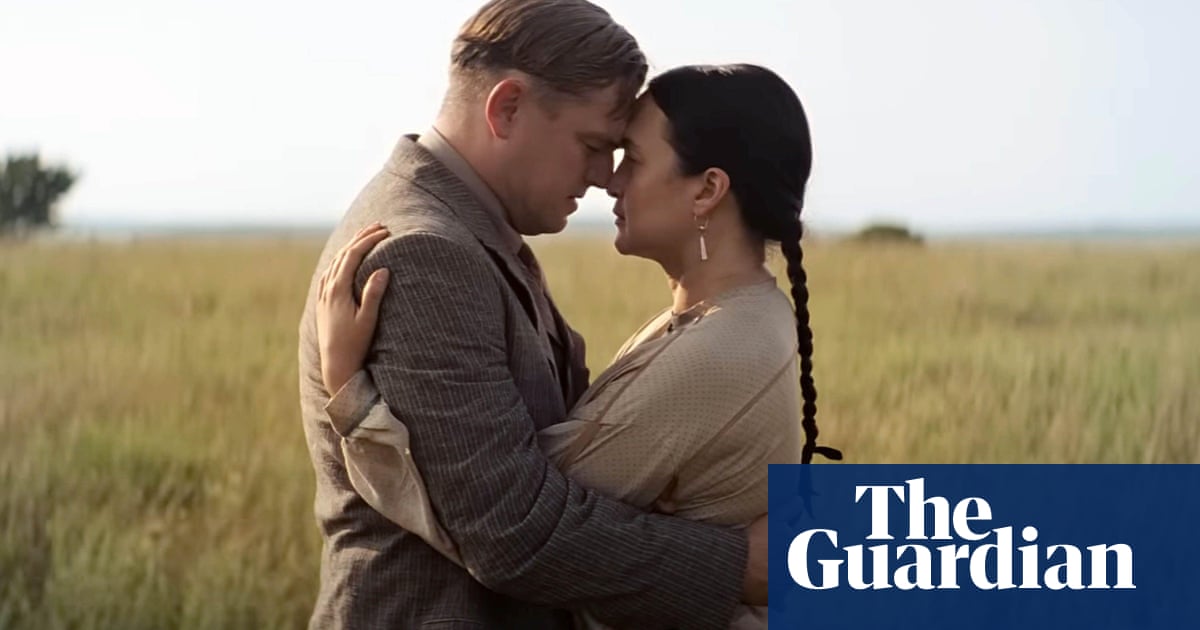
“Everyone knows Custer died at Little Bighorn,” declares celebrity author Eli Cash, resplendent in a white Stetson as he walks and talks about his latest novel to a hungry press pack. “What this book presupposes is … maybe he didn’t?”
Recently, this line from Wes Anderson’s iconic family saga The Royal Tenenbaums – delivered with impeccably weird comic timing by Owen Wilson – has been popping into my head on a regular basis. At first, I couldn’t work out why. Then I realised: Cash’s insouciant elevator pitch for his fantastical history might as well be the template for an increasingly ubiquitous type of TV series.
Everyone knows, for instance, that the 19th-century poet Emily Dickinson didn’t twerk and say “bullshit.” What Apple TV’s Dickinson presupposes is … maybe she did? Everyone knows Catherine the Great didn’t joke about having sex with a horse by saying “neigh means nay!” What Hulu’s The Great presupposes is … maybe she did? And everyone knows Lady Jane Grey was executed as a teenager, having occupied the throne for a mere nine days. What new Prime Video series My Lady Jane presupposes is … maybe she wasn’t?
Joining Dickinson and The Great – as well as Sally Wainwright’s Disney+ highwaywoman romp Renegade Nell (starring Derry Girls’ Louisa Harland, below) and, to a certain extent, the historically inspired Bridgerton – My Lady Jane is the latest bombastically anachronistic costume dramedy with a rebellious, headstrong female lead to grace our screens. The series opens with a brisk, wacky recap of 16th-century English throne succession, beginning with Henry VIII (“treated his wives like Kleenex – one blow and you’re out!”) and ending with Lady Jane Grey’s brief rule. “History remembers her as the ultimate damsel in distress – fuck that!” exclaims the ridiculously plummy voiceover. Then we’re straight into Jane’s private quarters, where her servants wisecrack about “shagging” as the lady sets out her plans to dodge wifedom by publishing a herbal remedy compendium. Unfortunately, her financially troubled mother – or “mercenary bitch,” as per her daughter – has other ideas.
Once you get past the cringily shoehorned-in swearing and eye-wateringly unsubtle irony, My Lady Jane is actually quite good fun: it has a twisty plot, an irreverent script, a cracking cast (Anna Chancellor, Rob Brydon, Jim Broadbent and Dominic Cooper among them) and, of course, the pleasure of seeing a woman refuse to submit to a brutal patriarchal regime. Yet it’s also impossible to deny that it feels like a bingo card of tropes from this ascendant subgenre. Plucky young heroine focused on self-actualisation and independence in the modern style? Tick! Jarring dialogue chock-full of expletives and contemporary vernacular? Tick! Ahistoric racial diversity as seen on The Great, Renegade Nell and Bridgerton? Tick! Female-sung, on-the-nose covers of British pop hits (The Great features Patti Smith’s take on Tears for Fears’ Everybody Wants To Rule The World, while My Lady Jane opens with a version of Bowie’s Rebel Rebel – I can only pray they haven’t neglected The Rolling Stones’ Lady Jane)? Bingo!
A few years ago, I wrote about Messy Millennial Woman, the mildly traumatised, aspirationally chaotic star of multiple dramedies, from Girls to Fleabag to This Way Up to Everything I Know About Love. Even then, she was feeling rather stale; this year she seems to have seriously gone off the boil, disappointing in much-hyped series such as Big Mood and Queenie. At the time, I wondered what new stock character would arrive to cater to younger generations, and we finally seem to have our answer: Anachronistically Audacious Historical Heroine, or AAHH if you prefer.
In one sense, AAHH’s appeal is obvious: her existence is an act of escapist wish-fulfilment. While the shows she stars in don’t shy away from portraying the horror of women’s lives in centuries past (sorry Messy Millennial Woman, but AAHH has real problems: the threat of torture and murder, for example?), they also rummage around in history, rearranging it to right some of these wrongs and injecting the narrative with an absurd euphoria that My Lady Jane’s conceptual act of rescue exemplifies.
Yet there are also broader reasons for AAHH’s rise. These shows neatly weave together the best bits of numerous popular genres: there’s the frisky YA love story seam (My Lady Jane is based on a young adult novel); the fantasy epic-style backdrop of alien customs, lavish costumes, brutal violence and, in the cases of My Lady Jane and Renegade Nell, supernatural intrigue; the female bildungsroman popularised in the wake of fourth-wave feminism. These shows – especially Bridgerton – have also revitalised the costume drama, stripping out the stultifying silences, languorous plotting and stuffy ideas about accuracy, and embracing the inherent ridiculousness of cosplaying the past with a permanent wink at the pretence involved.
It’s a clever fusion, although some aspects – like the brash obviousness of the dialogue – often leave the genre feeling a bit childish. And while feminist retellings of history can be joyous, the idea that all anyone needs to surmount subjugation is a small dose of chutzpah is slightly patronising.
While I was watching these shows, a certain sadness crept in too. The patriarchy might have relaxed its stranglehold over the intervening centuries, but the glee that comes from watching these women puncture male power reminds us how sublimated female desire remains. “I want my life to be mine, forever,” says Jane earnestly: she’d be disappointed to learn that half a millennium later such a simple goal remains frustratingly elusive.












